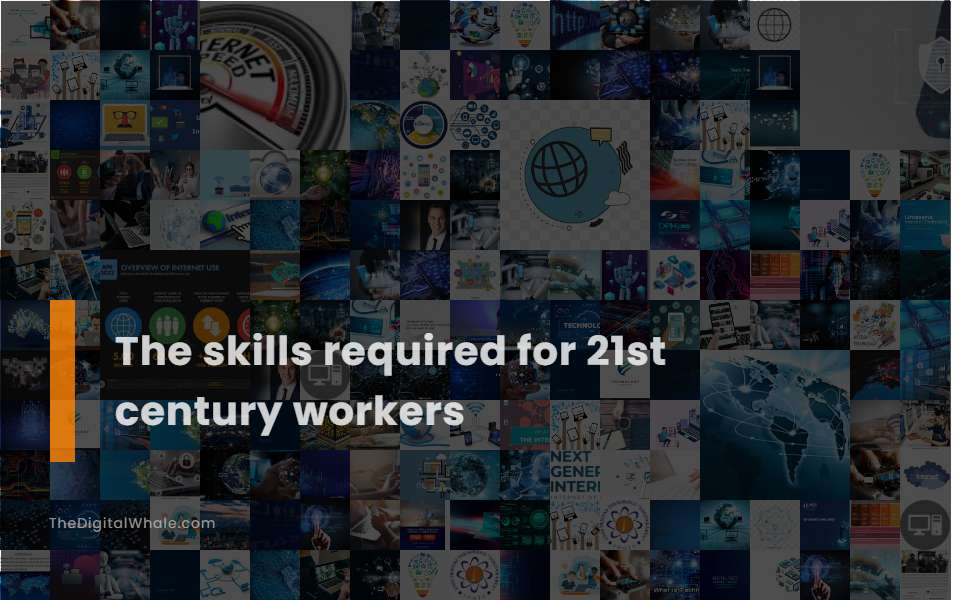The Skills Required for 21St Century Workers
What are st century skills? See Essential Skills You Need to Succeed in the Future. What skills are necessary for a successful st-century worker? Let's find out more about The Skills Required for 21St Century Workers.

Critical thinking and problem solving
Critical Thinking and Problem Solving are essential skills for the modern workforce, enabling individuals to enhance their reasoning and decision-making capabilities by analyzing various data sets and making connections between pieces of information. This involves employing diverse types of reasoning, evaluating evidence, and synthesizing information to devise innovative solutions to complex issues. These skills are crucial for making informed decisions and tackling non-familiar problems in both conventional and innovative ways. To further understand how these skills play a pivotal role in career development, it is important to consider how they contribute to overall performance and problem-solving effectiveness in various professional settings.
Creativity and innovation
Creativity and innovation are crucial 21st-century skills, enabling workers to develop innovative ideas, approach modern issues creatively, and think critically to solve problems and make connections between different sets of information. Employers highly value creativity as it allows employees to think of new, better ideas and solutions, especially in a workplace increasingly influenced by artificial intelligence, while also motivating employees by boosting their sense of agency and role ownership. Moreover, 21st-century skills encompass demonstrating originality and inventiveness, using various idea creation techniques, and effectively developing, implementing, and communicating new ideas. Embracing diverse perspectives and viewing failure as a learning opportunity are also integral to fostering an innovative mindset in the modern workforce.
Collaboration
Collaboration in the 21st century involves working together to achieve a common goal, utilizing diverse talents, expertise, and intelligence. It requires effective communication, flexibility, willingness to compromise, and a shared vision, making it a crucial skill for success in both educational and professional settings. For more detailed insights into this essential skill, visit the 4 Cs of 21st Century Skills at SC Stem Academy.
Communication
Effective communication skills in the 21st century workplace are crucial for success, involving clear and sincere communication, active listening, and the ability to build positive relationships and collaborate across diverse environments, including remote and cross-cultural settings. For more detailed insights on enhancing these essential skills, you can visit the Soft Skills Aha website. Mastering these skills not only enhances personal interaction but also significantly boosts career prospects and workplace harmony.
Information literacy
Information literacy is a foundational 21st century skill that enables individuals to understand, locate, evaluate, and use information effectively, separating fact from fiction and managing the flow of information from various sources critically and competently. To explore more about these skills, you can visit the website SC STEM Academy for a comprehensive guide.
Related:
What are some of the benefits of having better information literacy skills in the workplace? What are some ways to promote workforce data literacy in the modern workplace? Let's find out more about The Importance of Information Literacy In the Workplace.
Media literacy
Media Literacy involves understanding the methods and outlets in which information is published, distinguishing between credible and non-credible sources, and analyzing media messages to evaluate their quality, credibility, and purpose. To delve deeper into the significance of these skills, you can explore the comprehensive insights provided by the SC Stem Academy. By honing media literacy, individuals are empowered with the ability to critically assess the information they encounter daily, ensuring they can navigate the complex landscape of the digital age effectively.
Computing and ICT literacy
The skills required for 21st Century workers that focus on computing and ICT literacy include technology literacy, which involves understanding the machines and technologies that make the Information Age possible. This extends to information literacy and media literacy to navigate and evaluate digital information effectively. Digital literacy skills encompass competencies such as accessing, managing, understanding, integrating, communicating, evaluating, and creating information through digital technologies. These essential skills include computer literacy, ICT literacy, information literacy, and media literacy. To delve deeper into these concepts, visit 21st Century Skills for comprehensive insights.
Cross-cultural understanding
In the dynamic landscape of the 21st century, developing Cultural Intelligence (CI) is paramount for successful cross-cultural interactions. This includes components such as motivational, cognitive, metacognitive, and behavioral aspects, which enable individuals to effectively adapt to and engage with diverse cultural contexts. Effective cross-cultural communication further necessitates skills like cultural awareness, active listening, and flexibility, essential for fostering collaboration and trust among global teams. Moreover, Cultural Intelligence enhances cross-cultural competence, encompassing knowledge, skills, sensitivity, and empathy. These attributes empower individuals to communicate and innovate across cultures, thereby promoting inclusivity and enhancing organizational success in a globalized environment.
Leadership skills
For 21st-century leaders, essential skills encompass the ability to delegate, inspire, and communicate effectively, along with traits such as Honesty, Confidence, Commitment, and Creativity. Leaders must also possess strategic thinking, empathy, time management, and the ability to adapt quickly to changing environments. Fostering a people-centric approach and open communication is crucial in cultivating these skills, ensuring that leaders are equipped to meet the challenges of modern organizational dynamics. More insights on these essential Leadership Skills highlight the importance of these attributes in navigating the complexities of today's business landscape.
Social skills
Social skills are crucial for 21st century workers as they enable efficient teamwork, adaptability, and effective human interaction, which are difficult to automate and highly valued in the Labor Market, leading to higher productivity and better job outcomes.
Related:
What are the implications of the increasing use of electronic tools and technology in business? What new report offers insights into the impact of the digital revolution on labour markets? Let's find out more about The Changing Nature of Work In the Age of Technology.
